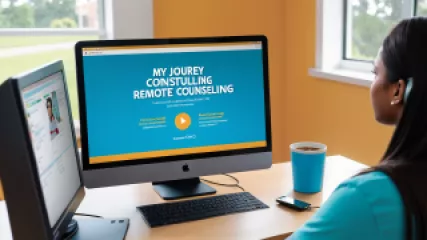Drama Therapy
How Can Drama Therapy Benefit Families?
Introduction
Families face various challenges and stresses in their daily lives, which can impact their emotional well-being and overall mental health. While traditional therapy approaches are effective, alternative methods like drama therapy have gained recognition for their unique ability to help individuals and families explore their emotions, enhance communication skills, and foster personal growth. In this article, we will delve into the world of drama therapy and explore how it can benefit families. From promoting creativity and self-expression to improving relationships and building resilience, drama therapy offers a range of valuable resources for families seeking support. So let's dive in and discover the transformative power of drama therapy.
Understanding Drama Therapy
Drama therapy is a form of creative arts therapy that harnesses the power of drama techniques to promote healing, personal growth, and social change. It combines elements of theater, psychology, and counseling to provide individuals and groups with a safe space to explore their emotions, express themselves creatively, and develop new coping mechanisms. By engaging in role-playing, storytelling, improvisation, and other theatrical exercises, participants can gain insight into their own experiences and build greater self-awareness.
Benefits of Drama Therapy for Families
1. Enhancing Emotional Expression and Empathy
One of the key benefits of drama therapy for families is its ability to enhance emotional expression and empathy. Through dramatic play and role-playing exercises, family members can step into each other's shoes and gain a deeper understanding of one another's perspectives and emotions. This process promotes empathy, compassion, and open communication within the family unit, ultimately strengthening relationships and fostering a sense of connection.
2. Improving Communication Skills
Effective communication is the foundation of healthy relationships within families. Drama therapy provides a unique platform for family members to practice and improve their communication skills. Through guided activities and improvisation, participants can learn to express their thoughts and feelings more effectively, actively listen to others, and resolve conflicts in a constructive manner. These newfound communication skills can significantly improve family dynamics and create a more harmonious environment.
3. Promoting Creativity and Self-Expression
Drama therapy encourages individuals to tap into their creativity and explore different aspects of themselves. For families, this means an opportunity to engage in imaginative play, storytelling, and other creative activities together. By embracing their creativity, family members can discover new ways to express themselves, build self-confidence, and foster a sense of joy and playfulness within the family unit.
4. Building Resilience and Coping Skills
Families often face challenging situations and transitions, such as divorce, loss, or trauma. Drama therapy can help families navigate these difficulties by building resilience and developing effective coping skills. Through role-playing and problem-solving exercises, family members can practice adapting to change, managing stress, and finding innovative solutions to problems. These skills not only benefit families in the present but also equip them with valuable tools to navigate future challenges.
5. Strengthening Family Bonds
Participating in drama therapy as a family creates a unique bonding experience. By engaging in collaborative activities, families can strengthen their emotional connection and build trust among family members. Sharing moments of vulnerability and creative expression fosters a sense of unity and solidarity, ultimately deepening the bond between family members.
Drama Therapy Resources for Families
If you're interested in exploring drama therapy as a family, there are various resources available to guide you on your journey. Here are a few options to consider:
1. Drama Therapy Workshops and Retreats: Look for local workshops or retreats that offer drama therapy programs specifically designed for families. These immersive experiences provide a structured environment for families to learn and grow together.
2. Drama Therapy Books: There are several books available that introduce drama therapy techniques and offer practical exercises for families. Some recommended titles include "Drama Games for Family Therapy" by Charles E. Schaefer and "Drama Therapy and Storymaking in Special Education" by Paula Crimmens.
3. Online Drama Therapy Resources: Explore online platforms that offer drama therapy resources, such as activity guides, videos, and articles. These resources can provide inspiration and guidance for incorporating drama therapy techniques into your family's daily life.
Conclusion
Drama therapy offers a unique and powerful approach to supporting families in their journey towards improved mental health and well-being. By engaging in creative activities, exploring emotions, and practicing effective communication, families can strengthen their relationships, foster empathy, and develop essential coping skills. Whether through workshops, books, or online resources, families have the opportunity to embark on a transformative experience together. So why not embrace the world of drama therapy and discover the positive impact it can have on your family's dynamics and overall mental health?














